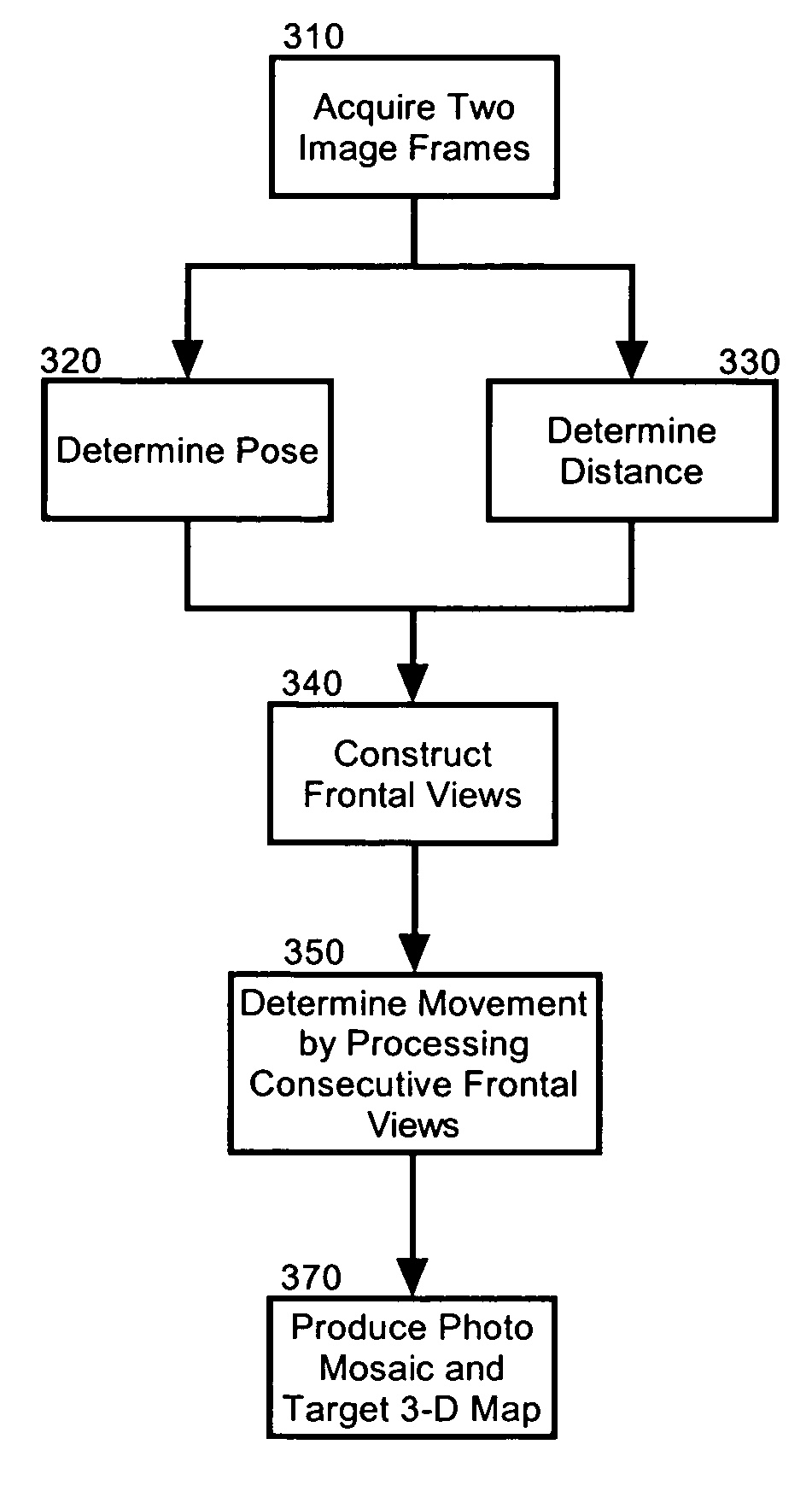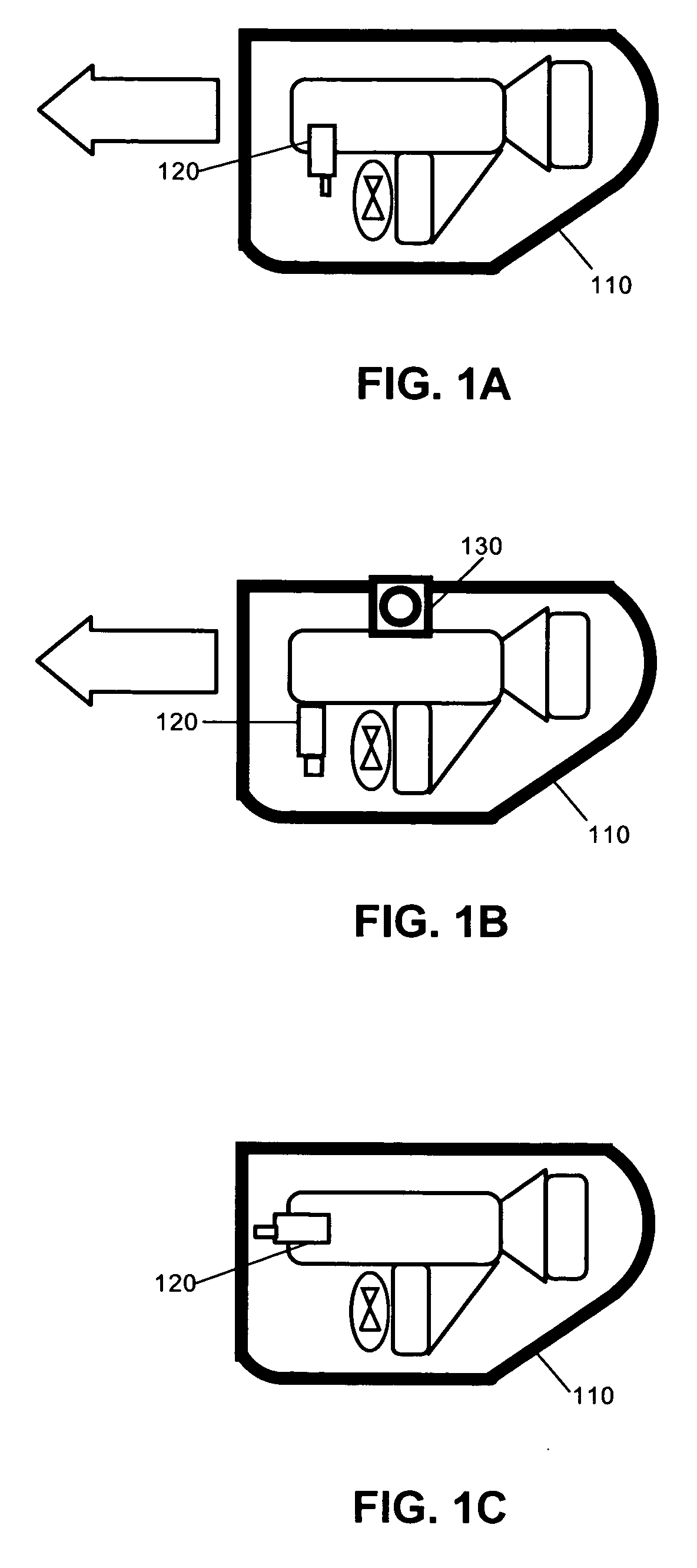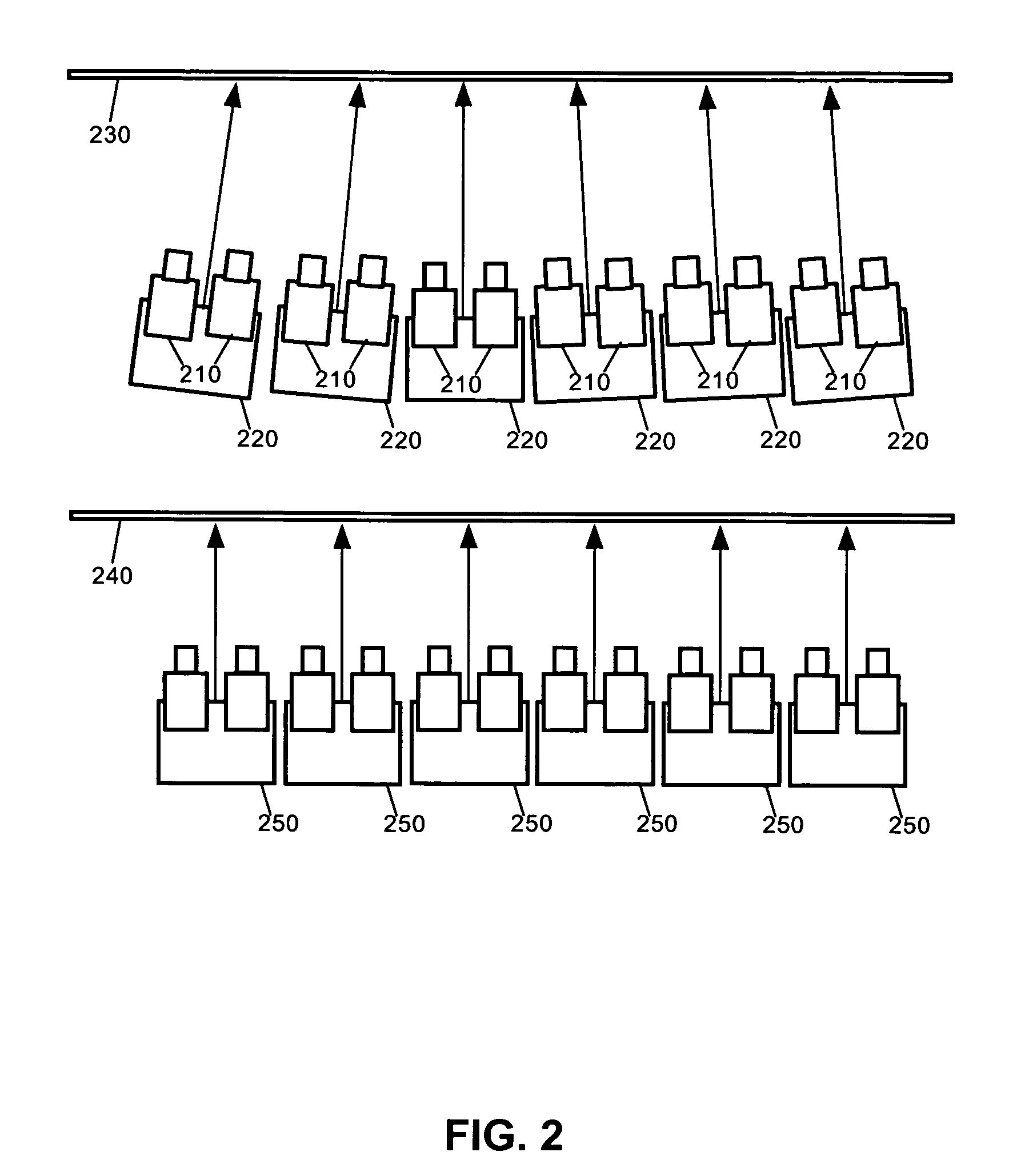Multi-camera inspection of underwater structures
a multi-camera, underwater technology, applied in the direction of image analysis, scene recognition, instruments, etc., can solve the problems of human involvement being unsafe, the process of underwater search and inspection in the context of security and risk containment has proved too dangerous for direct human involvement, and other serious complexities in the computer processing and analysis of video can aris
- Summary
- Abstract
- Description
- Claims
- Application Information
AI Technical Summary
Problems solved by technology
Method used
Image
Examples
Embodiment Construction
[0024] I. Introduction
[0025] The present invention is a multi-camera vision system for automated or operator-assisted inspection of underwater structures. The system of the present invention can include a stereovision system for precise positioning and navigation. The stereovision system can perform precise positioning and navigation by estimating the six degrees of freedom in the movement of a submersible platform directly from acquired images. In this regard, the stereo imagery can provide direct measurements of the distance and orientation with respect to the structure, which subsequently can be used to control the trajectory of the platform. The stereo processing performance can be optimized to take advantage of the relatively flat shape of target surfaces at arbitrary orientations, including hull surfaces, dams and docks. The information regarding the motion of the platform, determined from consecutive stereo imagery, also can be used for image or target three-dimensional (3-D...
PUM
 Login to View More
Login to View More Abstract
Description
Claims
Application Information
 Login to View More
Login to View More - R&D
- Intellectual Property
- Life Sciences
- Materials
- Tech Scout
- Unparalleled Data Quality
- Higher Quality Content
- 60% Fewer Hallucinations
Browse by: Latest US Patents, China's latest patents, Technical Efficacy Thesaurus, Application Domain, Technology Topic, Popular Technical Reports.
© 2025 PatSnap. All rights reserved.Legal|Privacy policy|Modern Slavery Act Transparency Statement|Sitemap|About US| Contact US: help@patsnap.com



